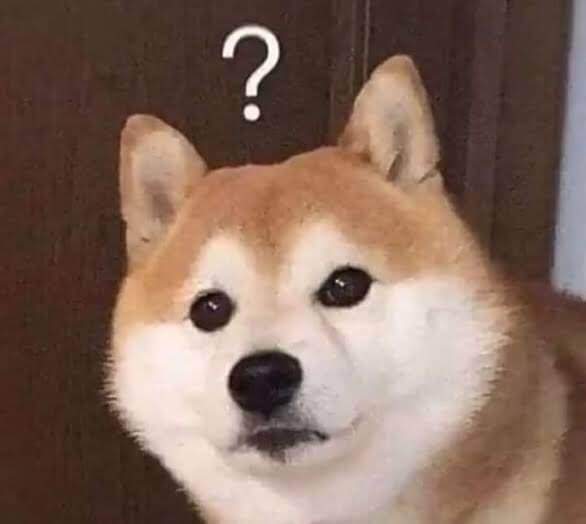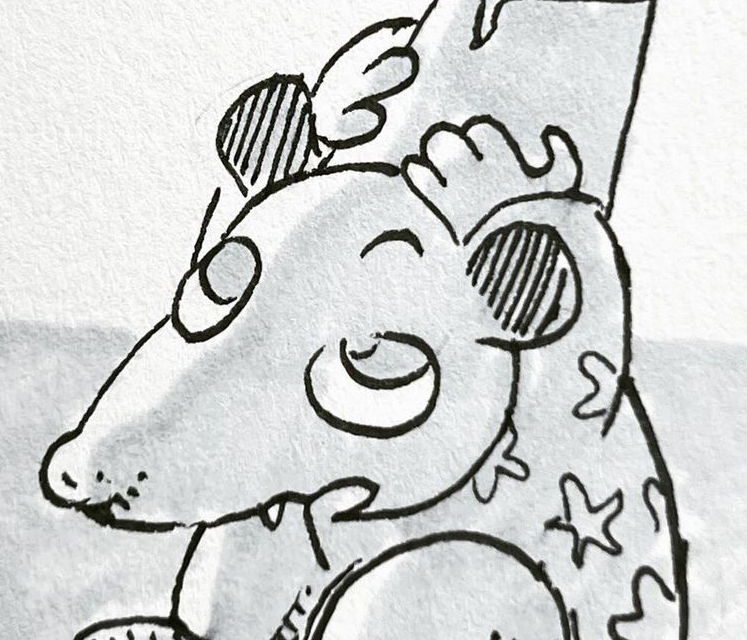Let’s keep things simple two rules.
- No giving sentience, This is a no brainer issue.
- Let’s keep it to beings under the Animilia kingdom. “mutated virus/bacteria” is a common trope.
To start:
Let’s modify ants to have lungs.
Most insects are constrained by the amount of oxygen they can acquire through their exoskeleton.
Imagine how big they can get if they didn’t have that constraint?
Octopodes no longer die when they give birth, meaning they can teach their young and form societies.
WAIT THEY DIE ON BIRTH!??
WTF this actually needs to be fixed.
Submit a bug report or fork the repo and do it yourself. It’s only maintained by volunteers after all.
But they are not social creatures, so if they were, even when they died someone in the social group could still teach the youngs
Children of Ruin is a great book.
Cows now have tetrodotoxin like Fugu fish. Incorrectly prepared cows now have the chance to kill you.
Why did I read this like patch notes on a game?
As it should be!
Opposite monkey paw situation, as cows are no longer farmed due to the poison risk, global emissions are massively reduced. And the huge amounts of land dedicated to feeding cows is returned to forestry, further reducing emissions.
The poisonous cows solve climate change long before the vegans can.
How much does the cattle rearing industry contribute to global emissions?
According to the USDA, the US cattle industry contributes about 3.7% of US greenhouse gas emissions, and livestock as a whole is around 14.5% globally on a cursory search
You’re giving the vegans ideas now. Lol.
A breed of 100+ pound Chihuahua with the same temperament as the original.
We already have wild pigs.
i need it
Like I need a hole in my head.
Ok, take this with a grain of salt because I read about it ages ago in a dubious pop-sci book and my memory is shaky. One time, they tried to gene edit yeast to be able to survive much higher alcohol concentrations. There’s lots of good reasons to want to do this… Beer/wine is just about the strongest beverage you can make without distillation of some kind because the yeast dies. Making way higher ethanol yields just from fermentation makes biofuel way more viable. Stuff like that.
EXCEPT… It nearly escaped, and was able to survive on it’s own. Yeast is very ubiquitous in nature, so a wild yeast that can tolerate massive ethanol concentrations could conceivably have altered life on earth as we know it.
A cursory internet search isn’t turning up anything about this, but I’m pretty sure I read it in the book Everything Is Going to Kill Everybody, if anyone wants to look harder than I did.
Both male and female mosquitos now drink blood and they spit some of the last person’s blood in you when they drink, causing them to spread blood borne diseases
Don’t they already spread blood borne diseases?
Give any animal the ability to photosynthesize. Now animals are of course complex creatures that need a variety of nutrients to function properly, and the number of chemicals we’ve seen be able to be photosynthesized is low, but imagine only needing to nude sunbathe for like a half hour to get enough sugars to fulfill your caloric intake, including the less efficient carb->protein/carb->fat conversion and pop a pill for some vitamins. Imagine if all animals had that as a baseline and just needed to hunt/forage for nutrients and vitamins to support auxillary functions.
Overpopulation would be nearly impossible despite massive population booms, with the only real limitation being physical space and the social dynamics of any given species or interspecies interactions.
The reason you don’t really see animals that can photosynthesize (other than microbes) is because you don’t actually get that much energy per unit of area. Think about how much area a cow has to graze vs the surface area of the cow itself. And much of the cow’s surface isn’t even facing the sun.
Not only that but that the energy from the nutrients generated in a plant is solely used for cell growth and maintenance. Even remotely suggesting a self-warming and extremely kinetic mammal can get energy solely from the sun is nuts.
I also saw a documentary about the ineffectiveness of the photosynthesis Enzyme. Maybe we need to alter this for something like mammal photosynthesis.
In a push to deal with micro plastics, bacteria are developed to be able to break down plastic. Eventually, it gets into the plastic installed for a purpose and starts breaking that down.
Damn I thought you were gonna say it gets into our bodies and eats us as we’re becoming part plastic nowadays.
That’s a horror movie premise right there.
I think that’s the basic plot to Andromeda.
It took the world a million years before it figured out how to digest cellulose. It used to be like plastic. Just piled up.
I thought I read about this for real a while back? In a bid to make plastic decay faster, make it out of cellulose with embedded bacteria that can break it down. It still happens too slowly for most plastic packaging
bacteria are not animals.
A new species of bear develops the temperament and train-ability of a domesticated dog.
People love the domesticated bears. They’re so big and cuddly. The bears quickly become the most desired pets in the world.
Bear breeding farms sprout up all around the world where the bears are subjected to awful conditions. There’s a general outcry against this but people keep buying the bears and the cruelty doesn’t stop.
Many of the bears are abandoned by their owners when they become adults and the owner realizes how expensive feeding a fully-grown bear is. And that’s before we get into the issue of the piles of poop the animals leave behind!
Although feral bears are smaller in size than their wild cousins, their sheer numbers makes their dominance in the wilderness inevitable. Habitats are destroyed and wild bears all become further endangered as the feral bears encroach on their territory and compete for food.
Animal control in every part of the world needs its budget doubled or tripled to deal with the problem, but many governments are slow to act on the issue.
Feral bears without fear of humans become common sights in small towns and the outskirts of cities, where they reap unmitigated havoc and destruction.
The governments of the world finally respond as the feral bear populations make their way into wealthier areas, but their responses tend to punish responsible bear owners as much or more than they actually address the bear-related problems.
In America, the Supreme Court rules that the right to “bear arms” includes the right to own a bear, so the few places that manage to have sensible restrictions on ownership are forced to drop them.
Mhh, insects in general IIRC are also constrained by the fact they have exoskeletons: i.e. their internal organs are just in a bag. So they can’t grow too much or they just squish I think.
Imagine them being able to become vertebrates. You can have insects the size of cats I think before the osmosis breathing tubes they currently have are not a thing. Lungs would be the next thing I guess.
Disclaimer: I’m not a biologist and just make stuff up from what I remember from high school biology, and it was last millennium!
According to my sister-in-law’s then boyfriend (who was a biologist or an insect guy or something), spiders and insects can have lung-line organs called book lungs. So they have options. Creepy buggy insecty options.
Oh right, I’ve read about that on coconut crabs I think. There you go, they are already half there.
Disclaimer: I’m not a biologist and just make stuff up from what I remember from high school biology, and it was last millennium!
If only the rest of the world was so honest!
House flies start producing potent methamphetamine in their wings, which means the whole world has uncontrollable access to it.
I actually started to maniacally laugh from this
Not very up on biology, so not sure if this would even be a thing, but I would say some kind of internal structure like plants allowing animals to overcome the square-cube law
All life with gills learn to breathe air without water, and suddenly all marine life is competing with us for land space
Amaranth that can grow on sand and be watered with seawater
Edit: ops, only animals? Make bees able to break down any kind of sugar into honey
A malicious gene drive. Basically, use molecular tools to ensure that a gene is always passed down from a parent to its progeny, regardless of the other parent’s genetic makeup.
Many choices available: propagate resistance to a pesticide for mosquitos, guarantee Huntington’s disease in a family, or crash a population of beneficial special by reducing fertility, to name a few.
Ant phagogenesis













